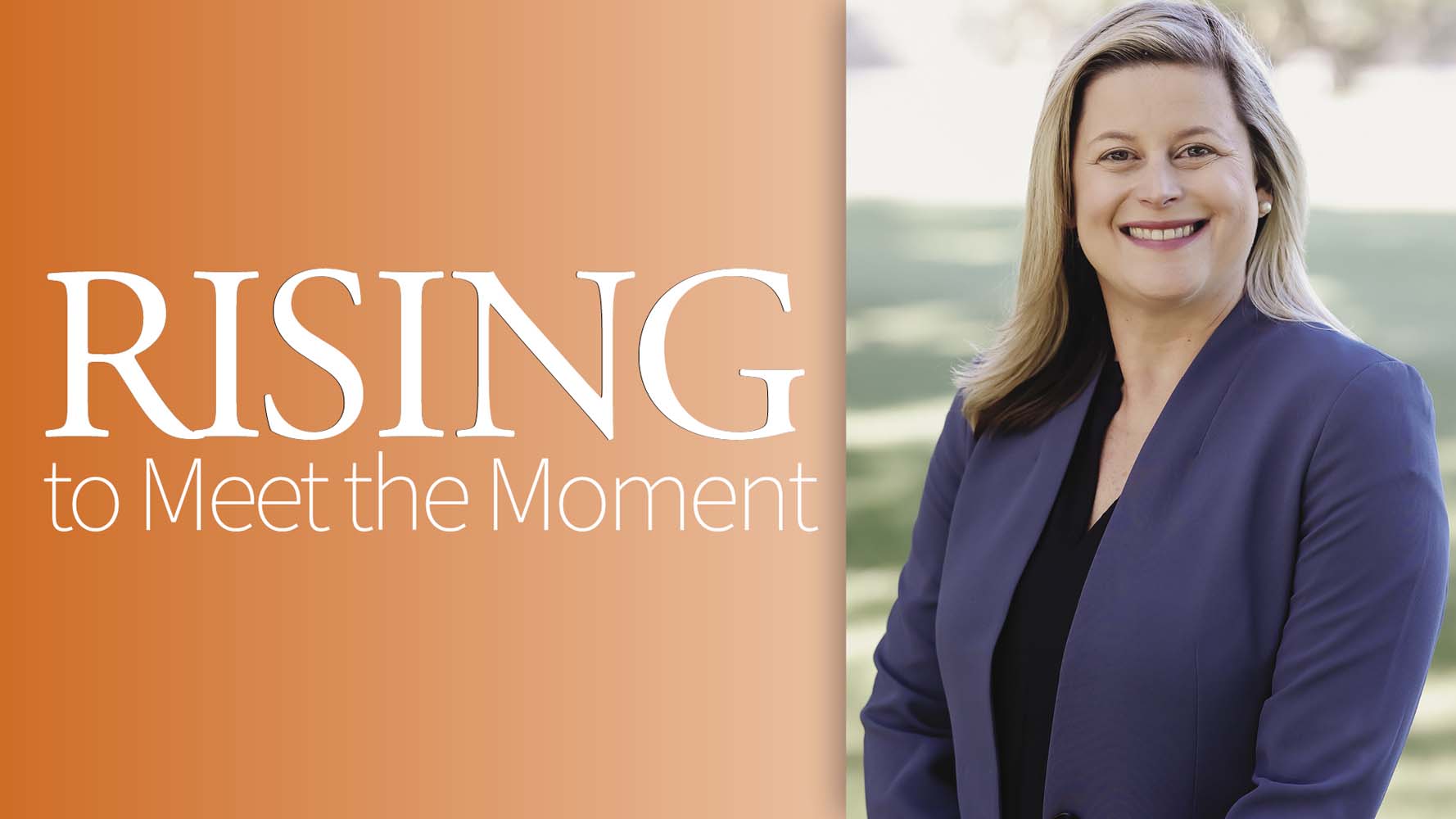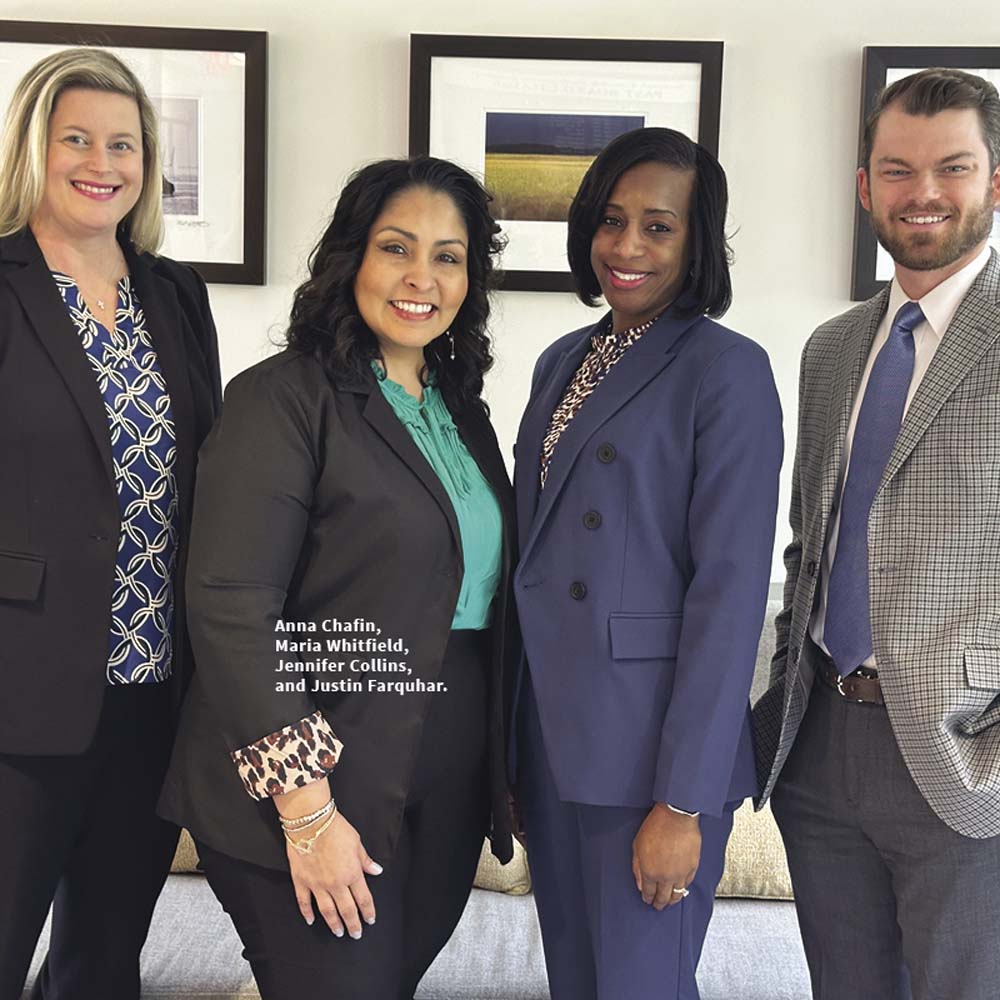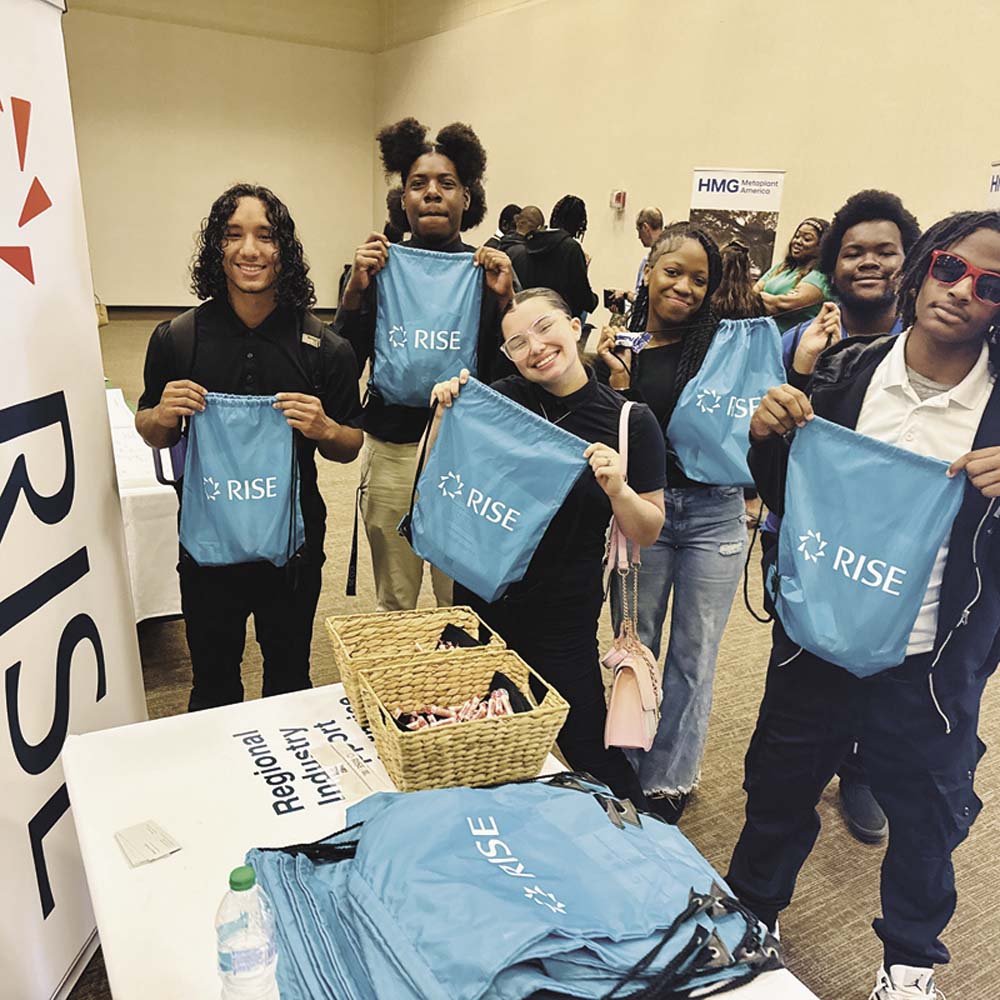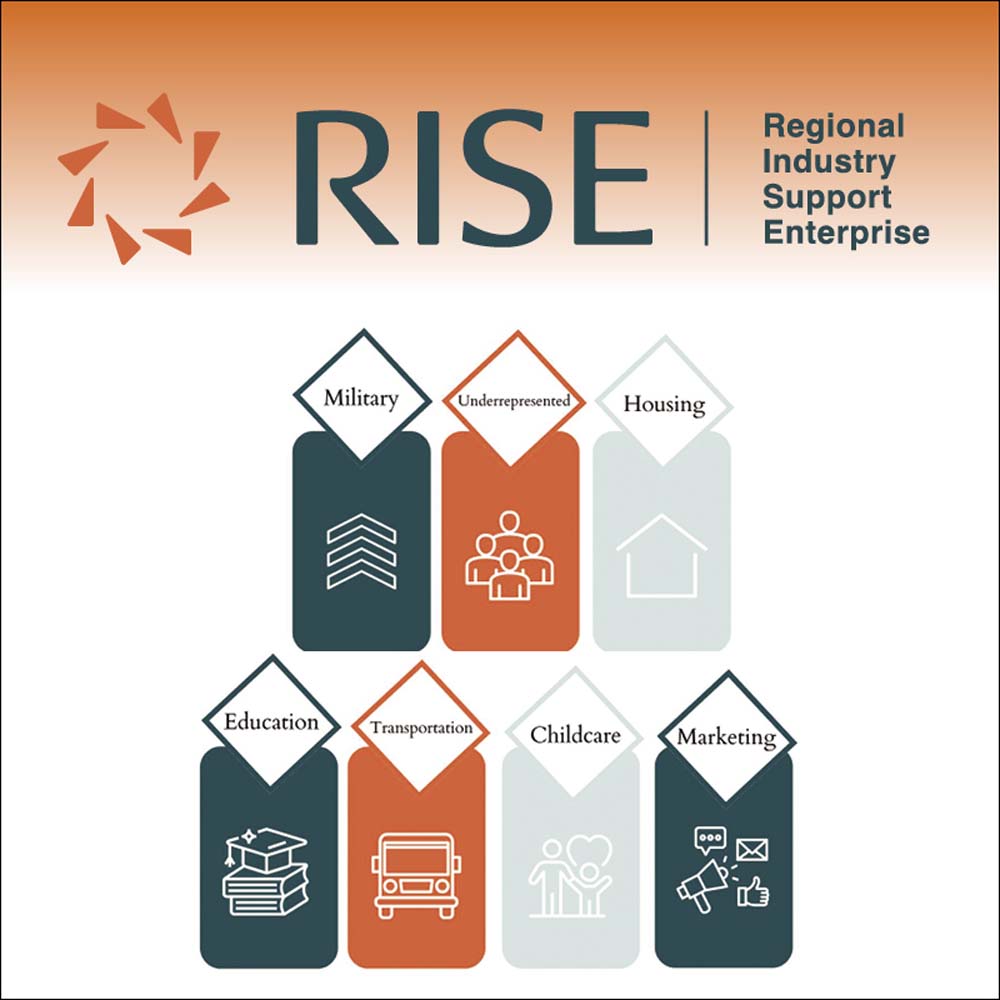
Rising
To Meet The Moment
Words By Summer Beal, CEO Bryan County Chamber of Commerce
Photos Contributed by SEDA

In 2022, when Hyundai Motor Group announced it would build its $7.6 billion Metaplant America in Bryan County, Georgia, it was hailed as a game-changing win for the region—and for good reason. The Savannah Harbor-Interstate 16 Corridor Joint Development Authority (Savannah JDA)—which unites the development authorities of Bryan, Bulloch, Chatham, and Effingham counties—had done its job. The “big fish” had been landed. But as the confetti settled, one pressing question loomed: Were we ready?
Hyundai’s promise of 8,500 jobs was a transformational opportunity, but a commissioned workforce study quickly painted a stark picture. The talent pool, already strained from post-COVID economic shifts, was predicted to be depleted by 2025. That forecast was accurate. Today, just over 1,200 workers have been hired, and while Hyundai has until 2031 to fully staff its operation, the challenge is far bigger than a single company. The truth is, every business—from global giants to small local shops—is feeling the pinch.

The ability to find qualified, loyal, and responsible employees has become the #1 challenge in our region, mirroring a trend seen nationwide. But in the face of this challenge, our region is doing what it does best, rising to meet the moment. Enter RISE—Regional Industry Support Enterprise—an initiative announced by the Savannah Economic Development Authority (SEDA) in 2023 and officially launched in early 2024.
At the helm of this ambitious effort is Anna Chafin, the former CEO of the Development Authority of Bryan County and a trusted, trailblazing leader known for her results and relatability.
“We are blessed to have such a robust existing industry base that is creating quality jobs for families throughout the Savannah region. We have an obligation to the industrial employers we have recruited to our region to help ensure they have access to the talent they need to be successful,” says Chafin. “At RISE, we are laser-focused on helping the industries in our region better maximize our existing and future talent pipelines.”

Joining her at RISE is Justin Farquhar, her longtime colleague, as Vice President of RISE, Maria Whitfield, Director of Employer Engagement and Jennifer Collins, Project Manager.
In addition to Chatham County, seven more counties became a part of RISE in 2025. “We are thankful that RISE has been embraced regionally, and we are honored to serve Bryan, Bulloch, Candler, Chatham, Effingham, Evans, Liberty, and Screven Counties. Our goal is to help our local development authorities plus up how they are serving existing industries. We help our development authorities provide service after the sale to the industrial employers who have invested in our region,” adds Chafin.
In just 15 months, they’ve turned urgency into action, branding the organization, securing continued funding, creating a board of directors and establishing a strategic plan rooted in community input.
Their findings? Workforce development cannot be solved by training programs and recruitment fairs alone. RISE identified seven pillars that either build—or block—a sustainable labor force. These areas now guide the work of the organization’s working groups, each made up of leaders, employers, and community members who know the issues first-hand.

Housing If You Build It,
They Might Come—
If They Can Afford It
Housing isn’t just a quality-of-life issue. It’s a workforce pipeline issue. Right now, demand for housing far outweighs supply, and affordable options close to major employment hubs are increasingly hard to find.
This drives workers farther away from job centers, increases commute times, and erodes loyalty. In some cases, would-be employees are turning down jobs—not because of the pay, but because they can’t live close enough to make the job work.
Education From
Classroom to Career
This is the long game—and possibly the most important one. Aligning education with industry is essential, but it takes more than one career fair a year. It requires meaningful partnerships between school systems, technical colleges, universities, and businesses.
We need students to see the “why” behind their education, and employers to invest in growing their future workforce long before graduation day.
Collins, who spearheads the K-12 education working group, knows that she has a big task in front of her. “Introducing students, parents and teachers early on to the options and pathways after high school is critical in building a skilled workforce that meets the industry’s needs. Many of these jobs are high tech, hands-on and well paying.”
Childcare The Silent
Strain on Working Parents
There are parents who want to work. There are jobs that need workers. But without safe, affordable, flexible childcare, they can’t connect. Especially in rural counties, licensed childcare centers are few and far between. And even when there are options, the cost is often more than a low-to-middle income worker can bear.
Military The Transition
Must Be Seamless
With Fort Stewart and Hunter Army Airfield in our backyard, we have one of the most underutilized labor pools in the country: transitioning military members. These are individuals who are disciplined, trained, and ready to work—but many leave our region because they don’t feel connected to post-service job opportunities here.
RISE is working with military leaders and employers to better bridge that gap—and keep that talent local as well as provide opportunities for veterans and military spouses.
Farquhar says he has been pleased with the engagement from the group that has come together to focus on military. “The military installations have been very plugged in along with employers and organizational resources on working to identify the best ways to assist transitioning soldiers, veterans and military spouses with finding employment opportunities. It is going to take the commitment of all these groups to best utilize those talent pipelines.”
Marketing
The Message Matters
People can’t say yes to an opportunity they’ve never heard about. Across our region, there are programs, apprenticeships, and employers who are hiring right now—but they’re not always reaching the people who need to hear it.
One of RISE’s goals is to build a regional brand around opportunity—to shine a spotlight on career pathways, company culture, and what it really looks like to work and live here. Not just recruiting people to the area—but reminding locals of what’s available within it.
Transportation
The Commute Can’t Be the Barrier
For many, the problem isn’t wanting to work—it’s getting to work. Public transportation options are limited, especially in rural counties. Without a car, a license, or reliable ride, otherwise qualified employees are left out of the labor force.
RISE is working to explore regional transit solutions, carpool programs, and employer-sponsored shuttles to remove this barrier.
Underrepresented Individuals
Equity is Not Optional
Whether it’s language barriers, a criminal record, a different ability, or systemic poverty, too many individuals are sidelined from economic opportunity. These are not lost causes—they are untapped potential.
RISE is also working with counties on employer forums which provide an opportunity for employers to come together, discuss issues, solutions and opportunities.
Coordinated by Whitfield, she says employers find immense value in connecting through the forums. “The forums are not just for networking, but for the chance to hear directly from other local companies facing the same challenges. Whether the topic is retention, engagement, or sharing best practices, it’s always helpful to hear what’s working for someone else here in our region. Plus, they often learn about resources and support they didn’t know was available.”
Maybe you’ve felt it.
You’re an employer with open positions—but every day you’re ghosted by applicants or worn down by turnover. You’re a parent, choosing between a paycheck and picking your child up on time. A student wondering whether a degree is worth the debt. A service member ready to transition but unsure where you fit. A community leader asking why the help-wanted signs are endless, yet people say there are “no good jobs.”
For the first time, there’s a central hub that’s listening to everyone, mapping the overlapping challenges, and building a shared, actionable plan.
While our region has a front-row seat to the workforce challenge, we’re not the only ones in it. Across the country, industries are being reshaped. The pandemic redefined expectations. Automation is shifting roles. Younger generations are rethinking work-life balance. And populations are moving—to places like ours.
The work RISE is doing could become a blueprint for how other growing regions tackle the labor puzzle—not just with training programs, but with whole-community strategies.















